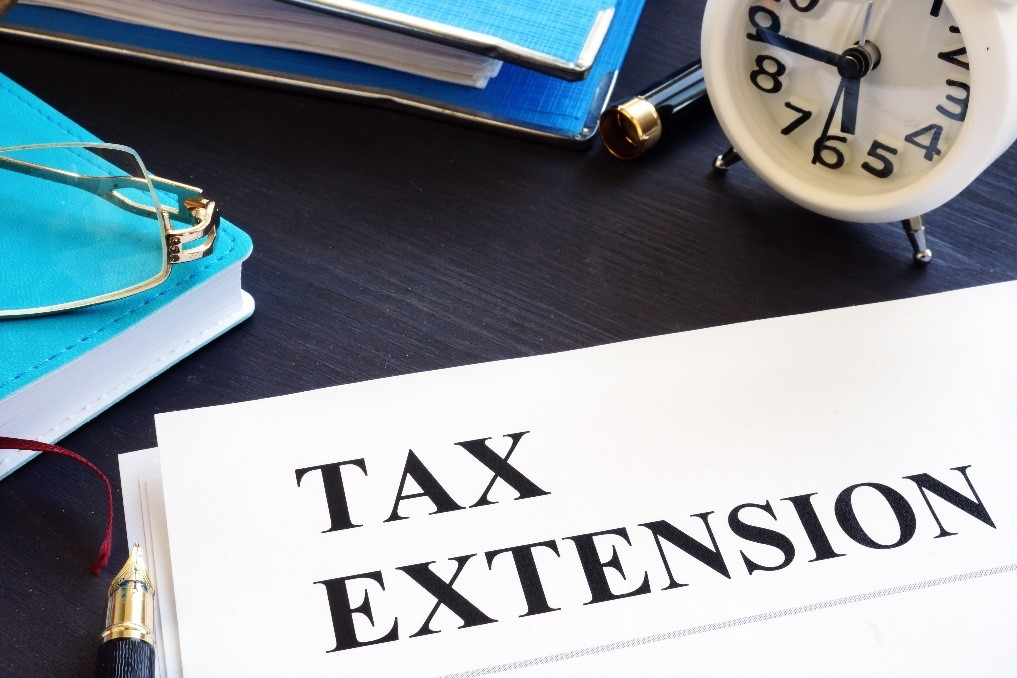Latest IRS Tax Extension Clarifications as of Thursday, April 9, 2020 8:03 PM

1) Estimated Tax Payments for 2nd Quarter: https://www.irs.gov/newsroom/irs-extends-more-tax-deadlines-to-cover-individuals-trusts-estates-corporations-and-others
“Besides the April 15 estimated tax payment previously extended, today’s notice also extends relief to estimated tax payments due June 15, 2020. This means that any individual or corporation that has a quarterly estimated tax payment due on or after April 1, 2020, and before July 15, 2020, can wait until July 15 to make that payment, without penalty.” (Commentary: So, for a calendar year taxpayer, no estimated tax payment is due for 2020 before July 15th, when you will then pay your 1st and 2nd Quarter payment. That’s good news! Until today, the 2nd Quarter payment was due on June 15th, even though the 1st Quarter payment was extended to July 15th, which was confusing and impractical.)
2) Extension of time to file beyond July 15
“Individual taxpayers who need additional time to file beyond the July 15 deadline can request an extension to Oct. 15, 2020, by filing Form 4868 through their tax professional, tax software or using the Free File link on IRS.gov. Businesses who need additional time must file Form 7004. An extension to file is not an extension to pay any taxes owed. Taxpayers requesting additional time to file should estimate their tax liability and pay any taxes owed by the July 15, 2020, deadline to avoid additional interest and penalties.”
(Commentary: This is what tax preparers expected, but it is good the IRS made an affirmative declaration to make it 100% clear.)
3) Various SUPER IMPORTANT special forms are also extended, as discussed above, with your returns. Again, it was a bit unclear, and now the IRS has made it 100% clear:
“This relief is automatic; Affected Taxpayers do not have to call the IRS or file any extension forms, or send letters or other documents to receive this relief. However, Affected Taxpayers who need additional time to file may choose to file the appropriate extension form by July 15, 2020, to obtain an extension to file their return, but the extension date may not go beyond the original statutory or regulatory extension date. For example, a Form 4868, Application for Automatic Extension of Time to File U.S. Individual Income Tax Return, may be filed by July 15, 2020, to extend the time to file an individual income tax return, but that extension will only be to October 15, 2020. That extension will not extend the time to pay federal income tax beyond July 15, 2020. This relief includes not just the filing of Specified Forms, but also all schedules, returns, and other forms that are filed as attachments to Specified Forms or are required to be filed by the due date of Specified Forms, including, for example, Schedule H and Schedule SE, as well as Forms 3520, 5471, 5472, 8621, 8858, 8865, and 8938. This relief also includes any installment payments under section 965(h) due on or after April 1, 2020, and before July 15, 2020. Finally, elections that are made or required to be made on a timely filed Specified Form (or attachment to a Specified Form) shall be timely made if filed on such Specified Form or attachment, as appropriate, on or before July 15, 2020.” https://www.irs.gov/pub/irs-drop/n-20-23.pdf (page 7).
(Commentary: That is, all the listed forms are due either on the original due date of July 15th or can be extended out to October 15th, 2020. )
4) Don’t fall prey to Coronavirus tricks; retirees among potential targets https://www.irs.gov/newsroom/irs-issues-warning-about-coronavirus-related-scams-watch-out-for-schemes-tied-to-economic-impact-payments
The IRS and its Criminal Investigation Division have seen a wave of new and evolving phishing schemes against taxpayers. In most cases, the IRS will deposit economic impact payments into the direct deposit account taxpayers previously provided on tax returns. Those taxpayers who have previously filed but not provided direct deposit information to the IRS will be able to provide their banking information online to a newly designed secure portal on IRS.gov in mid-April. If the IRS does not have a taxpayer’s direct deposit information, a check will be mailed to the address on file. Taxpayers should not provide their direct deposit or other banking information for others to input on their behalf into the secure portal. (Commentary: That is, don’t give anyone information about you or your forthcoming Economic Impact Payment, except for the IRS on their secure portal. You should not have to do anything else, or work with anyone else. Crooks are calling taxpayers to get information, promising to help them get their Economic Impact Payment…and that is all fraud!)
We hope you found this article about Latest IRS Tax Extension Clarifications as of Thursday, April 9, 2020 8:03 PM helpful. If you have questions or need expert tax or family office advice that’s refreshingly objective (we never sell investments), please contact us or visit our Family office page or our website at www.GROCO.com. Unfortunately, we no longer give advice to other tax professionals gratis.
To receive our free newsletter, contact us here.
Subscribe to our YouTube Channel for more updates.
Considerately yours,
GROCO, GROCO Tax, GROCO Technology, GROCO Advisory Services, GROCO Consulting Services, GROCO Relationship Services, GROCO Consulting/Advisory Services, GROCO Family Office Wealth, and GROCO Family Office Services.
How to Keep the Wealthy From Fleeing Connecticut
When it comes to saving on taxes the wealthy have to continually consider all their options because lawmakers never seem to stop pushing for more legislation aimed at making the wealthy pay more taxes. Lately, it seems that there are more and more reports of the nation’s wealthiest individuals living in high-tax locations deciding…
Finding Value Investments in Private Equity
Finding Value Investments in Private Equity Private investors and venture capitalists are always looking for the next great company, idea or product to put their money into, in order to reap great financial rewards down the road. However, how do private investors know where to find the true value investments that exist? Experienced Investor Jonathan…
Keys to Empowering Others
A common characteristic of many good leaders is the ability to delegate responsibility. One way that this can be done is by empowering others with the ability to also lead. Empowering someone else can be an excellent tool to achieve even greater success, both for the company and the individual. So how do you…
Top Tax Tips for Business Owners
Chances are if you run your own business then you are always looking for ways to get, and stay ahead, especially when it comes to paying your taxes. They are so many different things to track and organize when it comes to business taxes, but keeping a few simple tips in mind can make…




